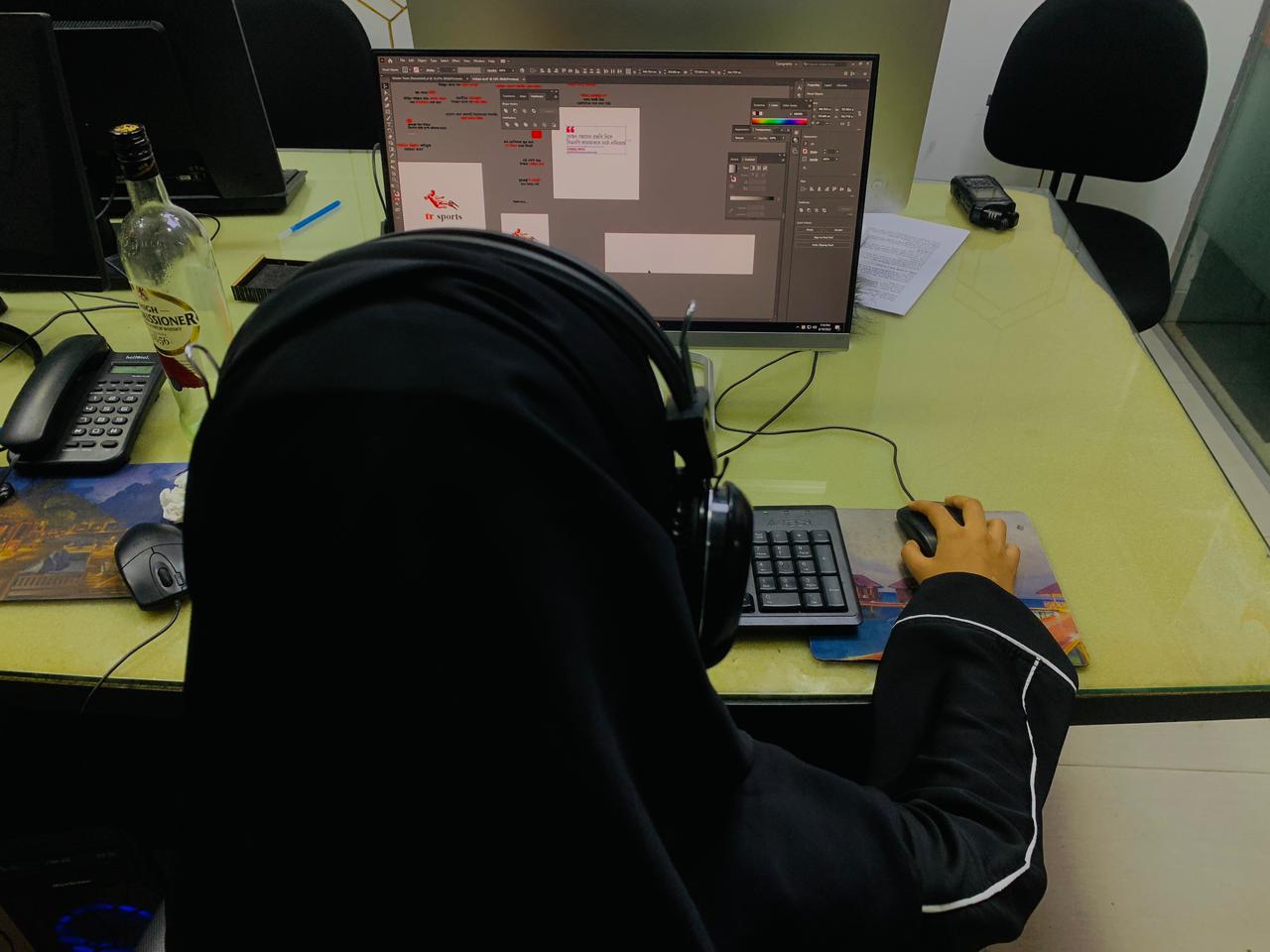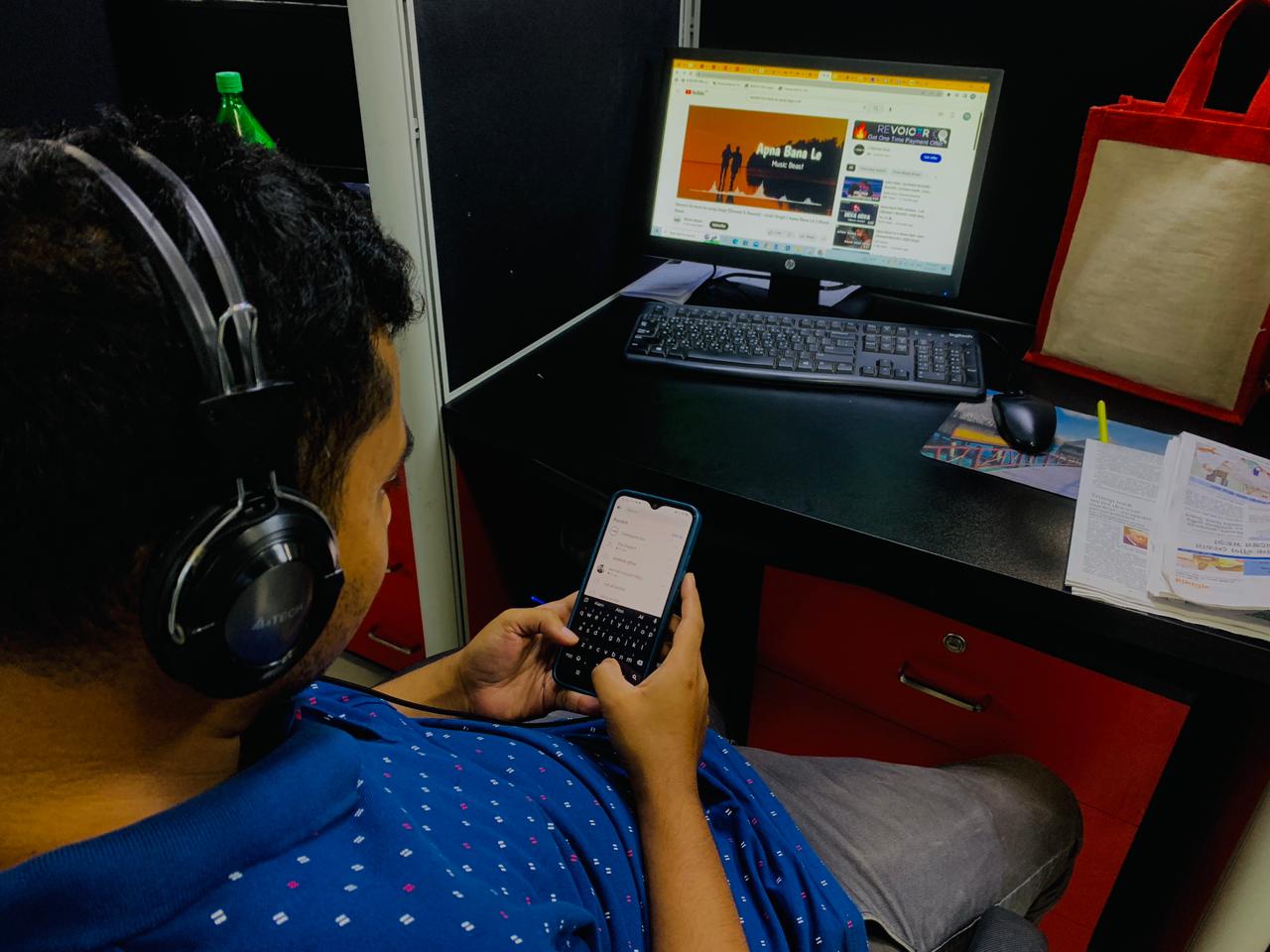Nowadays, more young students use the internet. However, 85.9% of students suffer mental difficulties as a result of their extensive internet use.
Aachol Foundation, a voluntary organization, has given this information after conducting a survey. 1 thousand 773 students of the country participated in this survey. Among them, 18.6 percent are college students, 64.3 percent are graduate level, 8.4 percent are post graduate level and 8.7 percent are job seekers.
Today, the results of the survey titled "Effect of internet use on students` Mental Health: How much caution is necessary?``, were presented in a virtual press conference.

According to the survey data, 38.2 percent of students use the Internet for academic purposes. 67.5 percent use the Internet for leisure, 42.9 percent for communication, 24.9 percent for playing online games or watching videos, 12.6 percent for online shopping and 8 percent for financial needs.
In this regard, Professor Kamal Uddin Ahmed Chowdhury of University of Dhaka, Clinical Psychology Department said that depression and other social-emotional disorders are much more than before in the youth group who are in the age group of 19-30 years. The suicide rate among them is also increasing at an alarming rate. In this case, the internet seems to be somewhat responsible.
Unlimited use of the Internet
62.3 percent of students are using the Internet excessively. According to the survey, 6.2 percent of students are online for more than 11 hours a day. 19.5 percent students use internet for 8 to 10 hours. 36.6 percent of students spend 5 to 7 hours on the Internet and 32.3 percent use it for 2 to 4 hours.
Education is under threat
91 percent of students feel addicted to using the internet. Among them, 22.4 percent are `highly addicted`, 47.7 percent are `moderately addicted` and 20.9 percent are `slightly addicted`.
Addiction to pornography
According to the survey data, 32.9 percent of students watch pornography or sexually suggestive websites on the Internet. Among them, 35.1 percent of students think about this. 13.6 percent of students are always interested in such work, 25.5 percent suffer from inferiority complex, 15.3 percent look at people of the opposite sex with disrespect, 10.5 percent enjoy sexual pleasure immorally.
Like comments are also having an effect
According to the survey, 26.5 percent of students` self-confidence was significantly impacted by changes in the amount of likes, comments, shares, or followers on their social media accounts. However, 35.7 percent of the students claimed that this impact on their confidence happens occasionally, if not always.

Comparing oneself with others also increases the problem
When it comes to social media views, 19.6 percent of students compare their own quality of life to that of others. 25.2 percent of students said that they prefer to post about their accomplishments on social media. 24.6 percent of people use social media for work-related purposes to stay in touch with everyone, while 29.7 percent see it as a platform for creative expression, including writing and video.
The results of the survey show that 51.4 percent of students have negative feelings when they view others` social media posts. 21.7 percent of people who use social media have expressed a wish to become famous overnight. Students who answered they occasionally but not usually experience this kind of desire comprised 29.6 percent of the total.
Tansen Rose, president of the Aachol Foundation, commented on the survey`s findings, saying that many students use the Internet to pass their free time. In the age of globalization, our young generation will fall behind if we do not use the internet. However, the survey indicates that they desire to use the internet for entertainment. since our country`s entertainment options have frequently gotten limited. Some students enjoy watching porn, playing online games, and viewing social media videos. There are innumerable distractions on the Internet. Students suffer as a result of their lack of digital literacy.


-20230610133126.jpeg)

-20260106082251.webp)

-20251231101531.webp)







-20260226080139.webp)






-20260225072312.webp)










-20260219054530.webp)
-20260224075258.webp)





-20260221022827.webp)